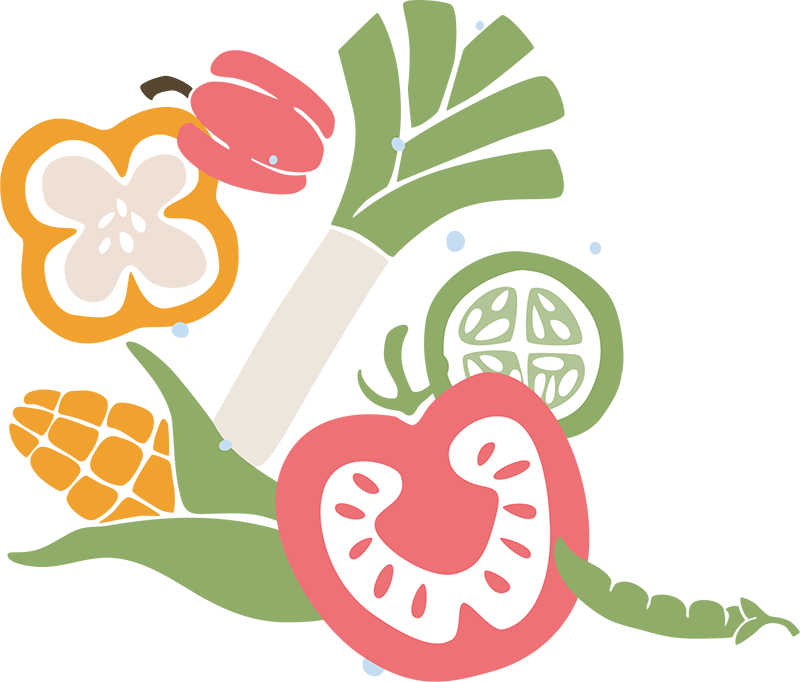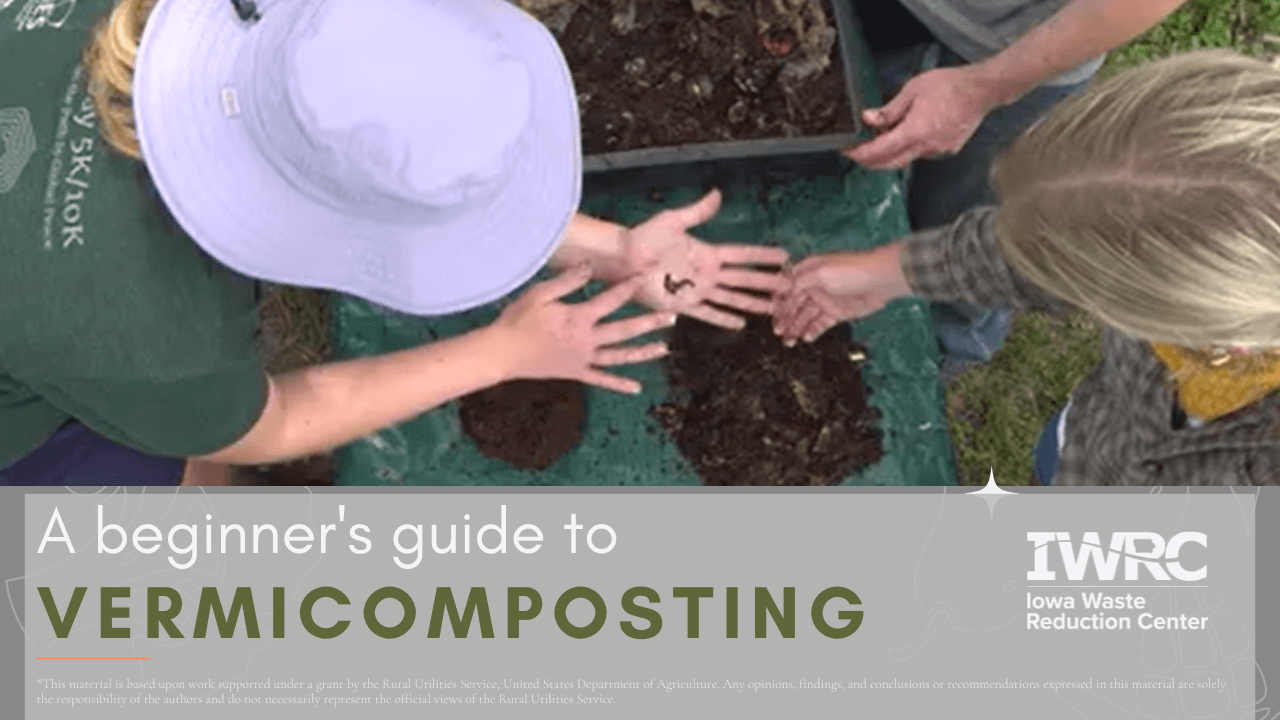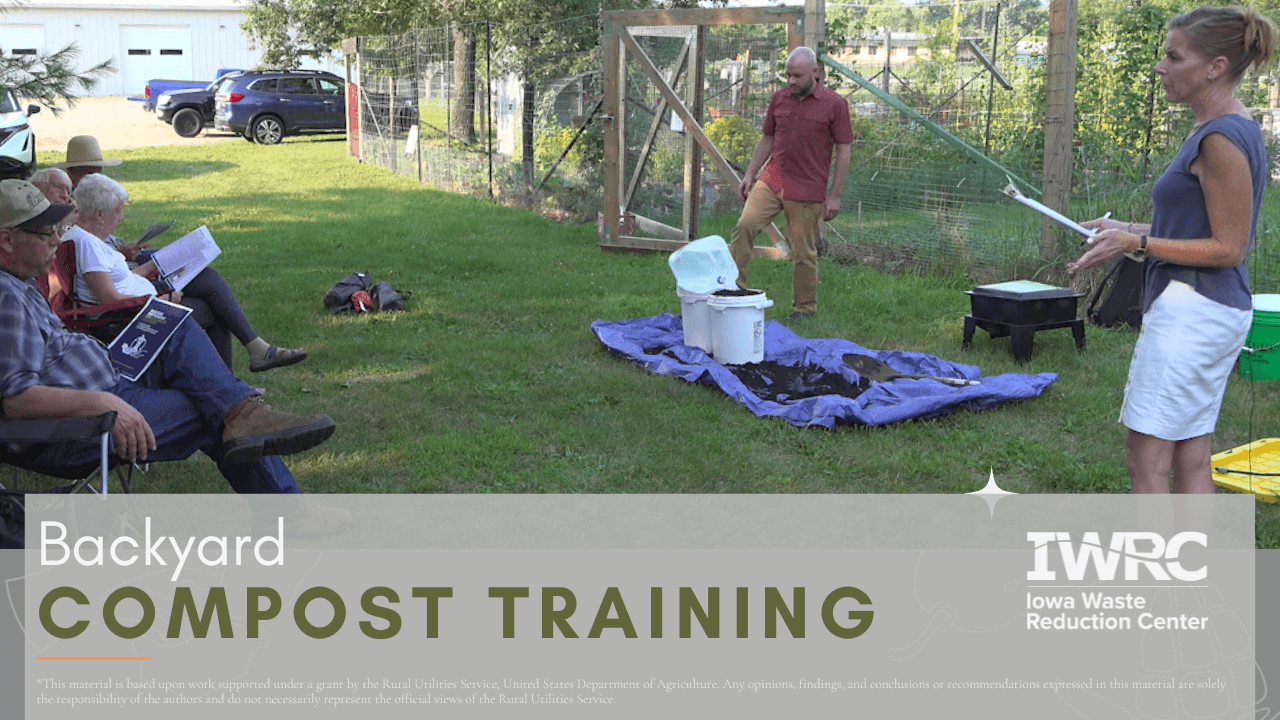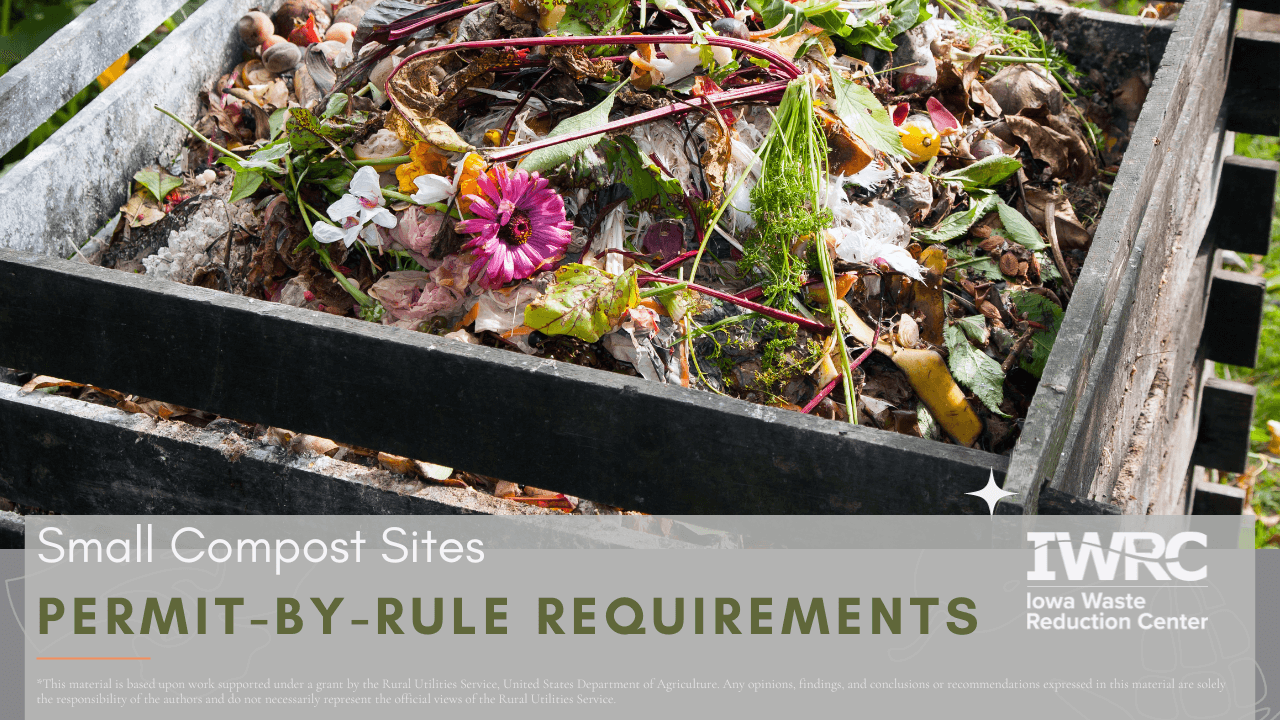Community Gardens and Farmers Market Compost and Donation Project
Find more information about your community: Iowa Falls, Manchester, or Shenandoah.
Download the toolkit and community brochures, view our free tutorials

Farmers markets are a great place to shop for fresh wholesome foods while supporting the local economy. But have you ever wondered, “What happens to the food that doesn’t sell?”
To help you and your community implement a local collection and donation of nutritious edible food left at the end of each farmers market, keep reading! Rather than toss this food in a field to rot or throw in the garbage where it ends up in the landfill, let’s make sure it gets to a local food bank, pantry or soup kitchen to help feed the community! But where do you start? You champion the effort by developing a community initiative that brings people together to support a good and noble cause! Feed the Community! But we need YOU to champion this effort to make a difference in a simple way!
Volunteers Needed!
Make a BIG IMPACT in your community with just a tiny fraction of your time at the end of the farmers market!
Are you a vendor?
Please consider donating leftover edible foods at the conclusion of the farmers market.
Do you have a few free minutes at the conclusion of your local farmers market?
We are looking for volunteers to collect leftover edible foods from vendors at the end of the farmers market and transport it to a local food pantry that feeds your community’s food insecure.
Find more information about your community: Iowa Falls, Manchester, or Shenandoah.
Develop your volunteer base in 6 easy steps!
Step 1: Contact Local Food Banks, Pantries and Soup Kitchens
Find out what kind of foods they accept and when they accept them.
Step 2: Partner with your Local Farmers Market
Contact your local farmers market manager to ask them to share volunteer and donation information with vendors to get the ball rolling.
Step 3: Get People to Sign-up
Set up a booth at the farmers market soliciting volunteers to donate, collect, and transport food at the conclusion of the farmers market to a predetermined food bank or pantry. Download volunteer sign-up sheets for your community here!
Step 4: Host a Kick-Off Meeting
Everyone can meet each other including vendors, recipient organizations, and collection and transport volunteers. Use the meeting as a time to invoke community pride but also train your volunteers about how to get the job done.
Step 5: Make it Easy
Send reminders to volunteers when it is their turn to collect and transport donations.
Step 6: Reward Volunteers
At the end of the season, thank everyone by hosting a dinner or banquet and consider giving awards to volunteers and donors.
Toolkit
Iowa Regulatory Composting ToolKit for Small Compost Sites (Food Waste and Yard Waste)
Brochures
Download the brochure to find out what you can do to make a big impact in your community.
Training Videos
- Iowa Falls, Iowa
Farmers Market: Location, Dates and Times

Food pantries willing to accept donations:
Ruth Project Food Pantry
Address: 415 College Ave.
Pantry Contact: Marlys Williams - Coordinator 641-648-6617Donation Drop off:
- Set donations inside the porch door on the east side of the house, which has an accessible wooden ramp
- There is no refrigeration, so only foods that don’t require refrigeration are accepted
- Donations are accepted on Wednesdays and Saturdays
Acceptable Items:
Any foods that do not require refrigeration.
Resources to help you out:
- Manchester, Iowa
Farmers Market: Location, Dates and Times

Farmers Market Contact: Dave Wakefield 563-927-4141
The food bank will NOT accept home-baked goods.
Since the Delaware County Food Bank is not open on Saturdays, Our Savior Lutheran Church has graciously agreed to store the food donations until Monday, when the food bank is open and can accept them. YOU will transport the food donations immediately following the Manchester Farmers Market to:
Our Savior Lutheran Church
Address: 116 Guetzeko Ct
Church Contact: Sara Breckenfelder, Secretary 563-927-4860On Monday morning, Christ Community Church will pick up the donations from Our Savior Lutheran Church and transport them to the Delaware County Food Bank. Christ Community Church already picks up donations from Wal-Mart so this is a great partnership! Thank you!
Christ Community Church
205 East Howard St.
Contact: Pastor David
Phone: 563-927-4772Delaware County Food Bank
119 South Franklin St.
Contact: Doug Robins - Coordinator
Phone: 563-920-8532Acceptable Items:
Any leftover edible foods EXCEPT home-baked goods.
Resources to help you out:
- Shenandoah, Iowa
Farmers Market: Location, Dates and Times

Food pantries willing to accept donations:
Shenandoah Community Food Pantry
Address: 1209 Fifth Ave.
Pantry Contact: Jeannine Liljedahl 712-215-2488Donation Drop off:
- Drop off donations at the conclusion of the Shenandoah Garden City Farmers Market on Wednesdays (2:00 - 5:00pm)
- Jeannine will be at the pantry on Wed. until 5:30/6pm to receive donations
- The pantry can also receive donations from the Saturday market if given a heads up beforehand via her phone number mentioned above.
Acceptable Items:
Any, including home-baked goods as long as they are from the market.
Resources to help you out:
LIABILITY PROTECTION
The Bill Emerson Good Samaritan Act protects donors of food from liability when donated to a non-profit organization that ultimately distributes to needy individuals. Should the food make someone ill, the donor is protected from civil and criminal liability as long as they donated the food “in good faith”, meaning they fully believed the food was safe to consume. Methods to maintain food safety such as refrigeration, need to be followed throughout the duration of the donation process. Liability protection is extended to donations made by restaurants, retail grocers, manufacturers, caterers, food trucks, food banks, farmers, gleaners, schools, and food service companies such as corporations, partnerships, organizations, and associations.
This material is based upon work supported under a grant by the Rural Utilities Service, United States Department of Agriculture. Any opinions, findings, and conclusions or recommendations expressed in this material are solely the responsibility of the authors and do not necessarily represent the official views of the Rural Utilities Service.
Rural Community Assistance Partnership, Inc., is an equal opportunity provider and employer.




